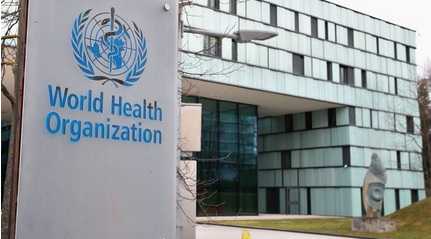
UNITED NATIONS, Apr 25 (APP): Despite the coronavirus pandemic, the past year has seen “significant breakthroughs in malaria prevention and control”, a senior official of the World Health Organization (WHO) said Monday, marking World Malaria Day.
“Landmark recommendations on the use of the first vaccine against malaria were released by the World Health Organization late last year,” Dr Matshidiso Moeti, WHO Regional Director for Africa, said. “This vaccine will be used to prevent malaria among children aged six months to five years, who live in moderate to high transmission settings,” she added.
Noting that the day is marked annually on April 25 to focus global attention on the mosquito-borne infectious disease, and its devastating impact, especially in Sub-Saharan Africa, Dr Moeti said that the year aligned with her urgent call to scale up innovation and deploy new tools to fight malaria, while also advocating for equitable access to prevention and treatment, within the context of building health system resilience.
Malaria remains a significant public health and development challenge, according to WHO. In the last year, about 95% of the estimated 228 million cases occurred in the WHO/AFRO Region, along with 602,020 reported deaths.
World Malaria Day was an occasion to “renew political commitment and encourage continued investment in malaria prevention and control,” said Dr. Moeti, calling on countries and communities affected by malaria to work closely with development partners to eliminate the disease while also contributing to achieving the other Sustainable Development Goals (SDGs).
“I personally, and the WHO Regional Office in Africa, remain fully committed to the fight against malaria,” she said. “We can overcome the challenge if we collaborate closely with governments, partners and communities to achieve a malaria-free Africa.
“Despite some slowing of progress to reduce malaria cases and deaths, and the disruptions to health services caused by COVID-19, we are still much further ahead than we were in 2000. We need to reignite that momentum, and build on the recent advances,” the WHO official attested.
Meanwhile, the UN agency UNITAID said more than two-thirds of all deaths from malaria occurred in African children under age five.
With pilots co-funded by UNITAID, the Global Fund and GAVI, the world’s first malaria vaccine is being delivered to children as part of a comprehensive package of preventive care.
Vector control, which targets disease-spreading mosquitoes, is a highly effective and vital component of malaria elimination strategies.
With investments into next-generation bed nets that combat growing mosquito resistance, new spatial repellents, and by treating humans and livestock with medicine that kills mosquitoes who bite them, UNITAID is driving progress to advance new and effective tools.




